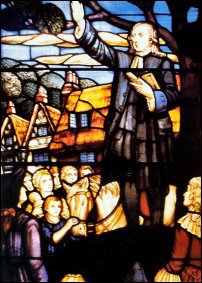anthrakia
Chapter 5 of Stanley Hauerwas's Cross-Shattered Christ is devoted to the words "I thirst," which Jesus said from the cross.
Hauerwas relates the words to the story from John's gospel of the Samaritan woman at the well--one of my favorite stories from the Gospels. (See John 4:1-26.) There's no walking on water here; no changing water into wine. The story represents one of the quiet moments with Jesus that probably occurred many times a day, but that seldom made it into the gospels.
It's a hot noon-time, and Jesus asks for a drink. The woman replies, "'You are a Jew and I am a Samaritan woman. How can you ask me for a drink?' (For Jews do not associate with Samaritans.)" (John 4: 9, NIV).
And Jesus says, "If you knew the gift of God and who it is that asks you for a drink, you would have asked him and he would have given you living water" (John 4:10).
Hauerwas notes that Jesus is this living water, and Hauerwas's chapter asks how can this "living water" then be thirsty? (74).
"The work of the Son, the thirst of the Son through the Spirit, is nothing less than the Father's thirst for us" (77).
I love those two images--the one used by Jesus, "living water," and the one by Hauerwas, "the Father's thirst for us."
As I thought about this chapter and these passages, the word "living" seemed to jump out at me, much more than "water." Jesus is "living" water, even as he "thirsts" to complete his work for us through death, as Hauerwas says (76).
In fact, his living personality is still with us today, as Luke Timothy Johnson has argued in Living Jesus. He is water--everywhere present, life-giving, thirst-relieving. He is alive with us in prayer, in the Eucharist, and in our worship. He is living water on that hot Samaritan day, on the cross that Friday, and somehow is still living water through the cross today. He is thirsting for us, as he provides for our thirst.
There's the mystery.
Best wishes,
Mason Smith
















 Somewhat frustrated that I have not been able to stay in touch with my Anthrakian friends, I'm happy to announce that today my Bellsouth DSL modem arrived and my umbilical cord is re-attached to mother-net. So for the next several days I should be able to read and catch up on the conversations and comments posted.
Somewhat frustrated that I have not been able to stay in touch with my Anthrakian friends, I'm happy to announce that today my Bellsouth DSL modem arrived and my umbilical cord is re-attached to mother-net. So for the next several days I should be able to read and catch up on the conversations and comments posted.


